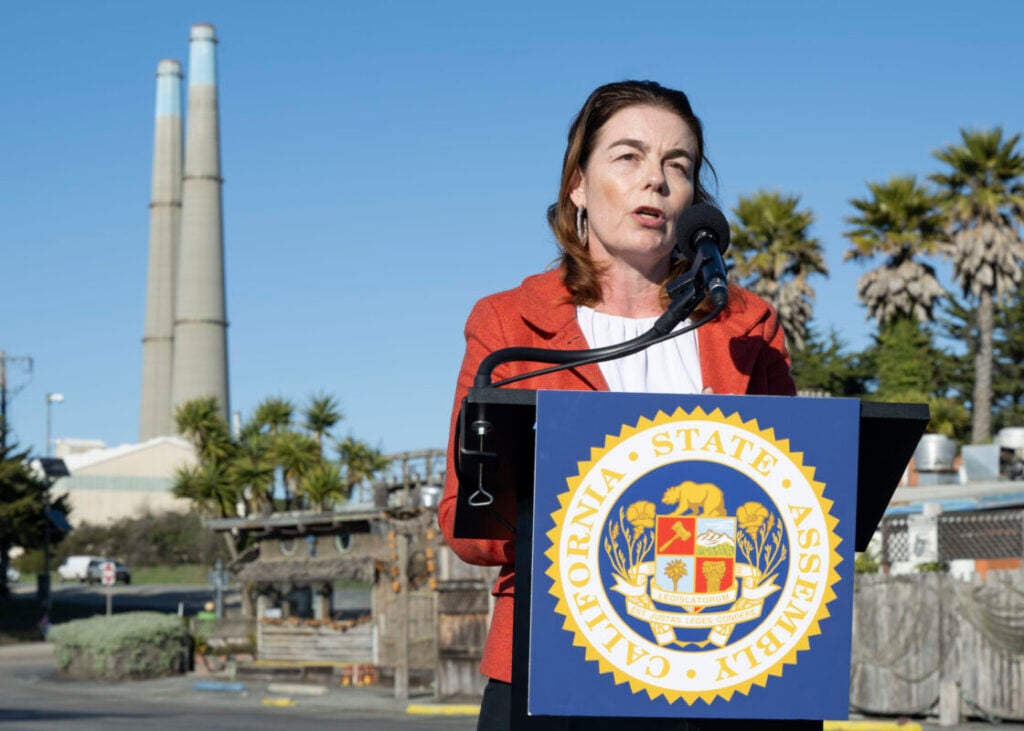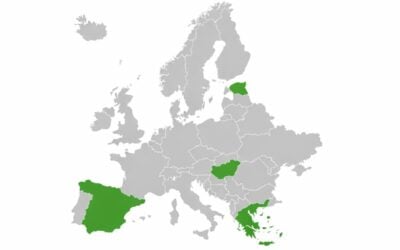
This Premium article, which was one of the most read Premium articles in 2025, has been made free to all to offer a glimpse of our Premium coverage.
—
With the final deadline for this year’s California legislative session having passed, now is a good time to analyse the outcomes of several bills that were first introduced earlier this year pertaining to BESS.
California Governor Gavin Newsom had until 12 October to sign or veto bills passed in the Legislature, following the end of this year’s session that occurred during the month prior.
Try Premium for just $1
- Full premium access for the first month at only $1
- Converts to an annual rate after 30 days unless cancelled
- Cancel anytime during the trial period
Premium Benefits
- Expert industry analysis and interviews
- Digital access to PV Tech Power journal
- Exclusive event discounts
Or get the full Premium subscription right away
Or continue reading this article for free
In the months following the fire which occurred at Vistra’s Moss Landing facility in January, several elected representatives introduced new legislation aimed at overhauling BESS safety standards along with the various permitting processes for the technology.
Enhanced battery storage fire safety
In terms of the most notable new BESS legislation, Governor Newsom approved Senate Bill (SB) 283 on 6 October.
Known as the “Clean Energy Safety Act,” the bill was introduced by Senator for District 17, John Laird, with the overarching aim of enhancing the safety of static energy storage systems.
Under the new law, from 1 January 2026, energy storage developers must prove that they have “met and conferred” with the authority that has jurisdiction over fire suppression where projects are being proposed.
This consultation must take place within 30 days of an application being submitted, regardless of whether the developer opts for a locally administered approval process or with the California Energy Commission (CEC) under its opt-in certification process.
In terms of consultation requirements, the new law requires developers to seek input on fire mitigation measures and emergency response plans, as guided by the requirements of SB 83.
Introduced and written into law during 2023’s legislative session, SB 83 happens to be another bill that was introduced by Laird surrounding BESS safety.
Additionally, after installation is completed, projects must be inspected and signed off by the relevant fire suppression authority before commercial operations are permitted. The developer is also responsible for the cost of this inspection.
The law also directs the Office of the State Fire Marshal to consider inclusion of provisions within the version of the California Building Standards Code restricting the deployment of BESS to outdoors or “dedicated-use noncombustible use buildings.”
According to a press release issued by Laird, “[these limitations] would avoid another incident like Moss Landing.”
The new law was welcomed by the President of California Professional Firefighters, Brian Rice, who described SB 283 as a “critical step forward in protecting both our firefighters and the communities they serve.”
“This law puts responsibility where it belongs — on the owners and operators of these facilities — and helps prevent disasters before they start,” added Rice.
Despite this acclaim, critics of the new legislation would argue that it doesn’t go far enough where fire mitigation is concerned, especially when the vast majority of energy storage developers already engage with local fire suppression authorities throughout the project lifecycle.
In its original form when introduced, SB 283 would have also required projects to adhere to the National Fire Protection Association’s (NFPA’s) 855 standards for the deployment of energy storage.
However, this requirement was later removed, after the Office of the State Fire Marshal adopted these standards during March this year.
Permitting overhaul falls short
Soon after the incident at Moss Landing, Assemblymember Dawn Addis introduced the “Battery Energy Safety and Accountability Act”, which threatened to remove the CEC’s jurisdiction over BESS facilities and introduce mandatory minimum setback distances between projects and surrounding buildings.
Although this legislation generated a large volume of media attention, it was publicly criticised by a handful of renewable energy industry members and county officials due to its potentially detrimental effects on California’s net-zero transition.
Following Addis’ decision to withdraw the bill from its first hearing with the Utilities and Energy Committee that was due to take place in April, the bill failed to make it past the first reading.
Another bill, proposed by Assemblymember Carl DeMaio, known as the “Safe and Secure Battery Storage Act”, also failed to progress further than the initial reading.
This bill would have prevented any California public agency from approving new battery storage facilities until 1 January 2028 while the Office of the State Fire Marshal developed a set of minimum fire safety standards for BESS.





